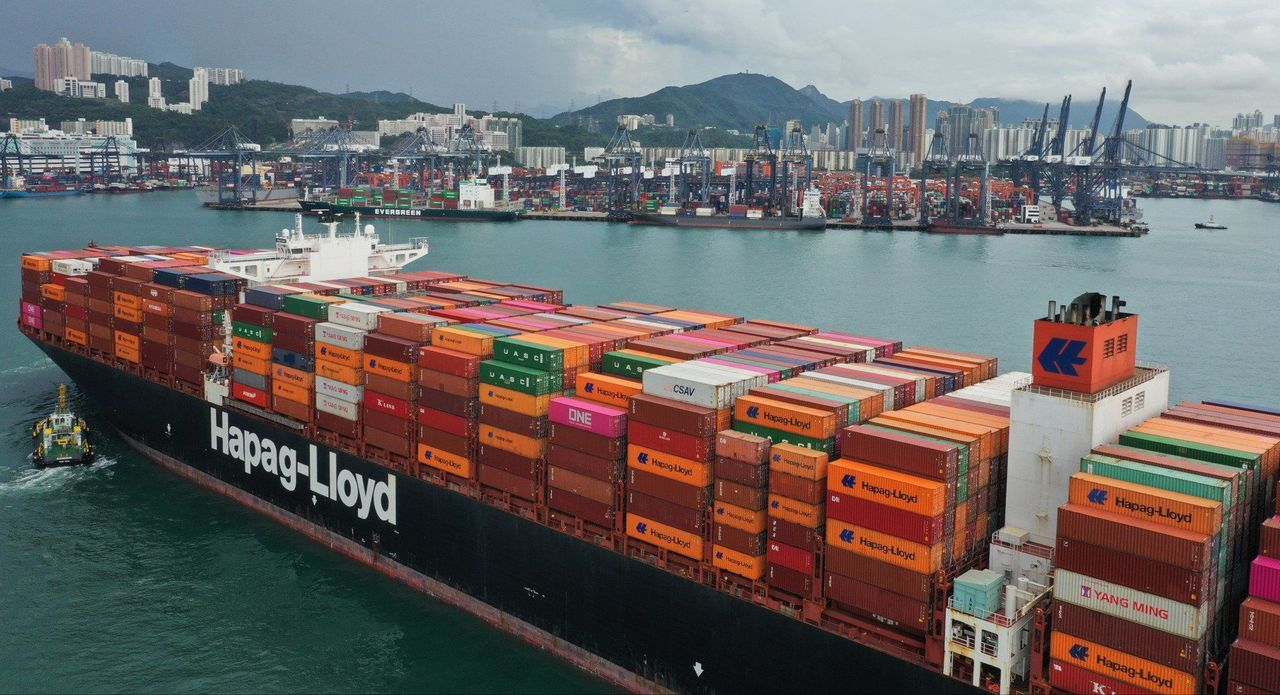Hong Kong News

Hong Kong exports shrink by 8.9 per cent, performance expected to continue to slow
Hong Kong exports for July shrank by 8.9 per cent from a year earlier, while the government expected performance to be dragged further due to heightened geopolitical tensions and supply-chain disruptions caused by the Covid-19 pandemic.
Exports totalled HK$379.6 billion (US$48.4 billion) last month, down after a year-on-year increase of 6.4 per cent in June, according to figures released by the Census and Statistics Department on Thursday.
Imports also fell by 9.9 per cent from a year ago, to HK$407.2 billion, after an increase of 0.5 per cent the month before.
Hong Kong’s trade deficit stood at HK$27.6 billion for July, equivalent to 6.8 per cent of the value of imports of goods.
A government spokesman attributed the trade performance to a worsening external environment and continued disruptions to cross-boundary land transport.
Exports to mainland China, the United States and the European Union showed widened declines, while other major Asian markets saw mixed performance, the spokesman noted.
“Looking forward, Hong Kong’s export performance will continue to be dragged by the weakening global growth momentum,” he said.
“Aggressive monetary policy tightening in advanced economies to curb inflation will weigh on global demand. Heightened geopolitical tensions and pandemic-induced supply-chain disruptions also add to the headwinds.”
 Hong Kong’s trade deficit stood at HK$27.6 billion for July, equivalent to 6.8 per cent of the value of imports of goods.
Hong Kong’s trade deficit stood at HK$27.6 billion for July, equivalent to 6.8 per cent of the value of imports of goods.
Gary Ng Cheuk-yan, a senior economist at Natixis Corporate and Investment Bank, predicted that the city’s export growth would shrink by 4 per cent due to poorer external demand as interest rates rose around the world, leading global consumers to save more money by purchasing fewer goods.
He also forecast Hong Kong’s gross domestic product (GDP) would have a zero per cent growth for the whole year, although local pandemic restrictions and border control measures played a larger role in determining the city’s GDP for the year when compared with exports and imports.
“If we do not see a quick relaxation in Hong Kong’s mobility measures, then I think it’s quite likely that Hong Kong’s economy will face more downside risks. It’s likely that Hong Kong will slip into a [full-year] recession in that case,” he said.
The government had earlier downgraded its full-year forecast for the city’s economic performance from 1 -2 per cent expansion to between 0.5 per cent growth and 0.5 per cent contraction on the back of a worsening external trade environment.
Hong Kong also slipped into recession earlier this year, as GDP shrank by a revised 1.3 per cent in the second quarter compared with the same period last year following a year-on-year decline of 3.9 per cent in the GDP in the first quarter.
A recession is defined as a contraction of GDP for two or more successive quarters. The last time the city fell into recession was in 2020 during the initial phases of the Covid-19 pandemic.
The downgrade reflected the havoc wreaked by the city’s fifth Covid-19 wave combined with the government’s “dynamic-zero” policy that kept the city largely closed off from the rest of the world.
It is the second time authorities have lowered their annual growth forecast in three months.











